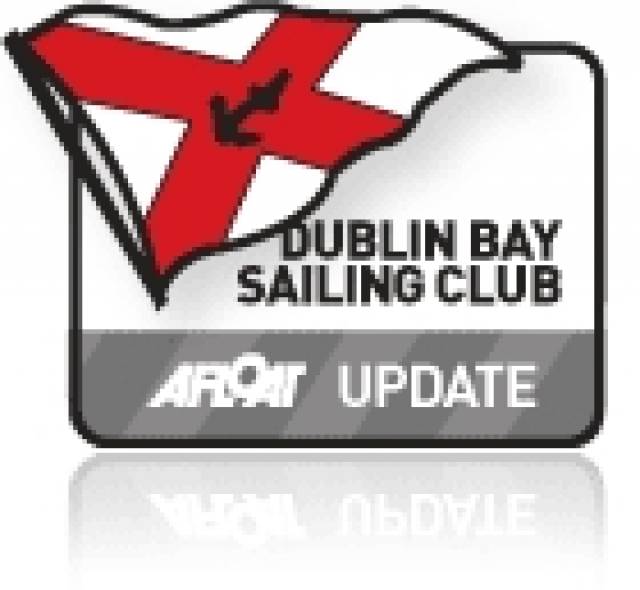#springchicken – We're back into 2015 already and Team INSS kicked off their 2015 racing with the Dublin Bay Sailing Club Spring Series sponsored by Rathfarnham Ford. It was a cold windy start to the season with ice having to be scraped off the deck of our 1720 before we could safely rig for sailing.
Towing out, there was a cold breeze in form the West, Fintan Cairns and his team laid a triangular course with a start line just off the harbour mouth and a windward mark near Sandymount strand with the outfall mark being the gybe. Team INSS had a completely new team out of which one person had only competed with the team in the series before. Due to the stormy weather we have had over the past month, a training day was not able to happen prior to the event so our crew were totally fresh out of the blocks so to speak.
A heavily biased pin end saw all the 1720s in the third start converged with all getting off the line with no bumps or bashes. From here the pecking order quickly established itself with 'Third Time Lucky' and 'Merlin' both hailing from the George, duelling for the lead. Team INSC settled into third with 'Lady A' the fourth 1720 and the two other 1720s from the Irish in fifth and sixth.
There were no major changes across the race track but the gusty conditions did catch a few boats out including a 1720 going into a full capsize.
A great start to 2015 on the bay with the new Team INSS looking forward to a fantastic season ahead!






























































